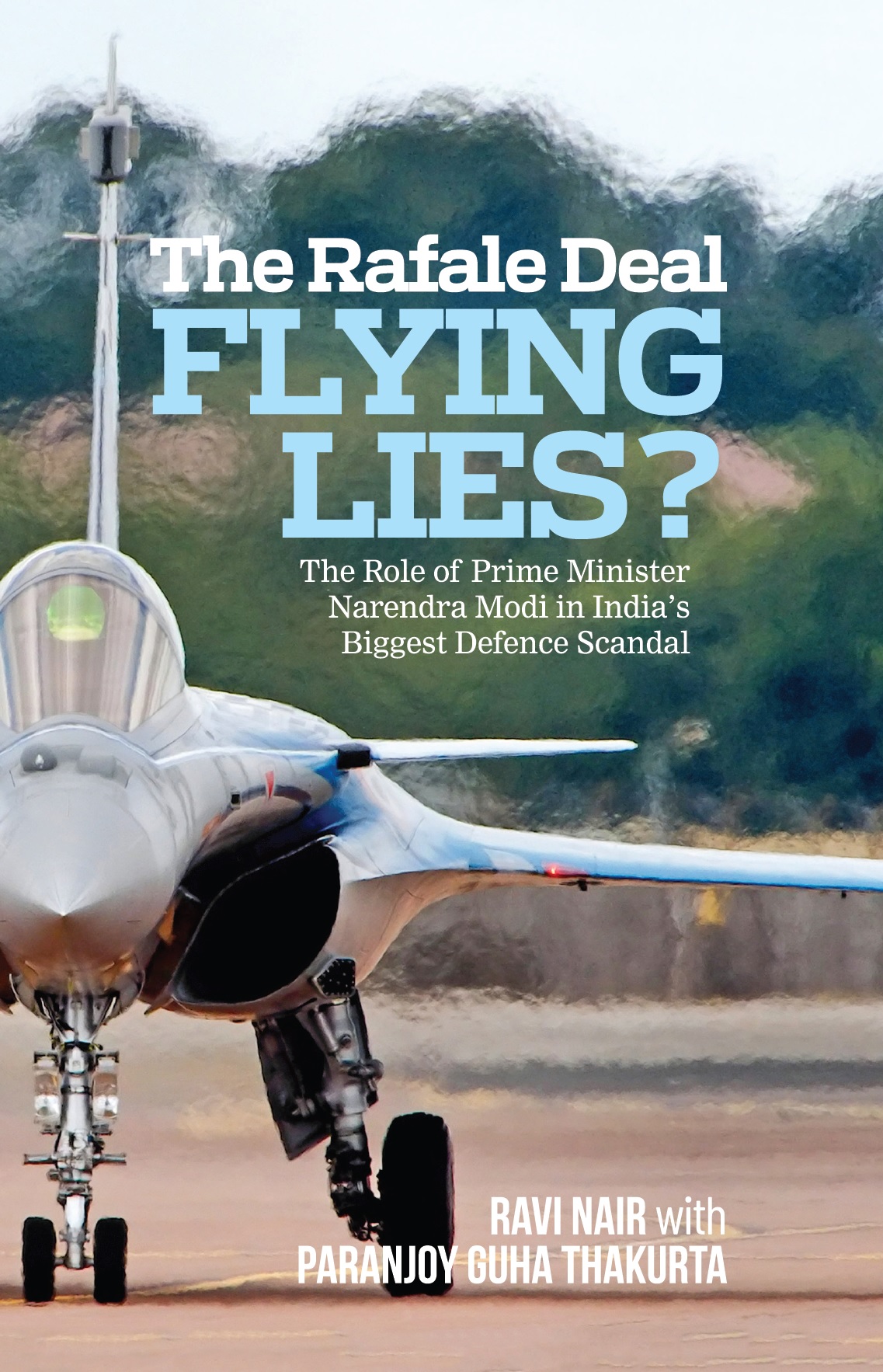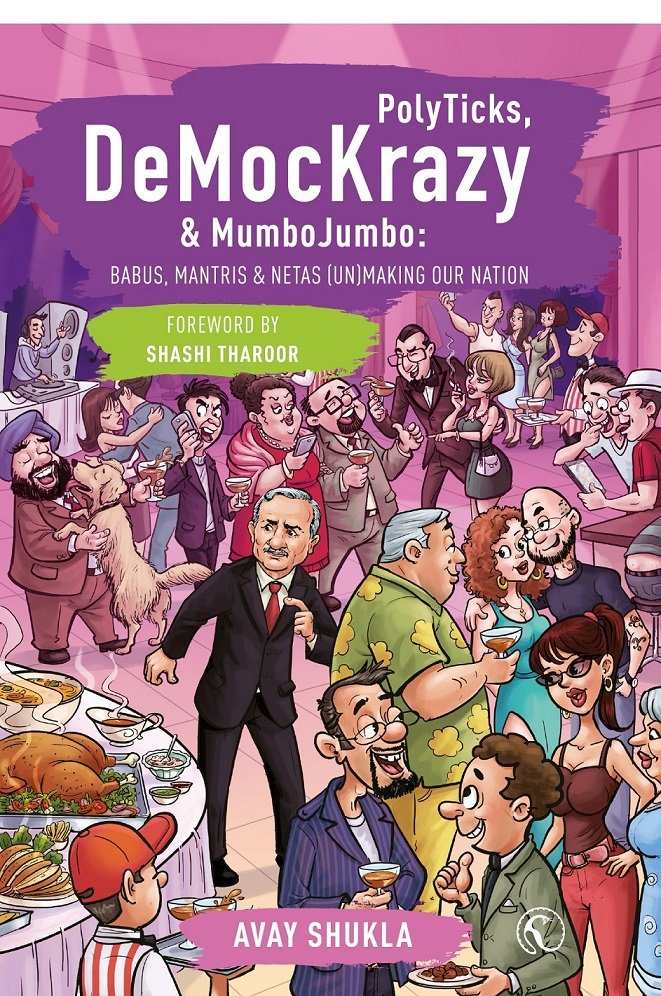The paradox is rather apparent. In the contemporary history of India, never have so many once-influential politicians had to spend time behind bars as they have in recent times. Yet the second UPA government, headed by a Prime Minister who was known as Mr Clean, is also being perceived as one of the country’s most corrupt regimes, packed by people with flexible ethics.
Before one seeks to explain the contradiction, here’s a roll call of important politicians who were recent guests of the taxpayer, some of whom are still in jail and not yet out on bail: Andimuthu Raja, former Union minister for communications and information technology and MP belonging to the Dravida Munnetra Kazhagam (DMK), three Rajya Sabha MPs, K. Kanimozhi (DMK), Suresh Kalmadi (Congress) and Amar Singh (formerly with the Samajwadi Party), former chief minister of Karnataka, B.S. Yeddyurappa who used to belong to the BJP, and former chief minister of Jharkhand Madhu Koda, not to mention former Karnataka minister for tourism, youth affairs and infrastructure development, Gali Janardhana Reddy — of the Bellary iron ore scam infame — and the richest MP in terms of officially declared assets, Y.S. Jaganmohan Reddy.
A number of bureaucrats and businessmen accused in the second generation (2G) telecommunications spectrum scandal can be added to the list of luminaries who are or have been in judicial custody: Siddharth Behura, former secretary, department of telecommunications, R.K. Chandolia, former private secretary to A. Raja, Swan Telecom promoters, directors and their associates Shahid Usman Balwa, Asif Balwa and Rajeev Agarwal, DB Realty promoter Vinod Goenka, Unitech’s managing director Sanjay Chandra, Sharad Kumar of Kalaignar Television and Bollywood film producer Karim Morani.
To these names of accused persons can be added three senior executives of the Anil Dhirubhai Ambani Group (Gautam Doshi, Surendra Pipara and Hari Nair) — who allegedly acted on their own without the knowledge and consent of their employer. An accused in an earlier case of corporate fraud, B. Ramalinga Raju, was granted bail by the Supreme Court after the Central Bureau of Investigation failed to frame charges against him within the statutory period.
Among important politicos (none of whom have been arrested) named in another recent scandal, Coalgate, are ruling party MP from Nagpur and newspaper magnate Vijay Darda, his brother, Maharashtra education minister Rajendra Darda, Congress MP Naveen Jindal and his brother-in-law. To this list one can add individuals close to at least four present and former Union Ministers: Subodh Kant Sahay, former minister for food processing, Sri Prakash Jaiswal, minister of state for coal, and his predecessor Santosh Bagrodia, besides S. Jagathrakshakan of the DMK, minister of state for information & broadcasting. For the Congress, it is small consolation that BJP MP Ajay Sancheti, who is close to party boss Nitin Gadkari, has also been linked to the scandal.
If corruption in India is as old as the hills, why has this issue been dominating discourse across the length and breadth of the country, from the rarified confines of cocktail parties to the bustle of bazaars? Why has the “India Against Corruption” movement gained such a lot of traction and attention? Here are a few possible reasons.
The nexus between business, politics and crime was never out in the open as it is at present. It is grudgingly acknowledged today by even the most ardent votaries of the policies of economic liberalisation followed over the last two decades that crony capitalism has become rampant and that oligarchs have flourished on account of poor regulatory mechanisms. Corruption has not spared any section of Indian society: the defence services, the judiciary and the media which is (ironically) supposed to be exposing corruption. Still, paradoxically, the honest minority among military personnel, judges and journalists have become increasingly proactive and vocal about the need to curb corruption in high places.
The government has invariably dragged its feet in combating corruption and acted only when it was not left with much of a choice. It has hesitated whittling down the edifice which is the fountainhead of corruption in India, that is, the pattern of funding elections. While some have been harping about the need to bring back wealth illegally stashed in foreign bank accounts by Indians, the government has deliberately kept the Mauritius route wide open to facilitate the laundering of black money. The government has also consciously allowed participatory notes to be used in stock-exchange transactions by foreign institutional investors which help conceal the source of funds coming into the country (despite criticism by the Reserve Bank of India).
Even if Dr Manmohan Singh’s personal integrity has never been questioned, he evidently chose to turn a blind eye to the corrupt practices of at least a few of his colleagues in the Cabinet and the council of ministers and his party compatriots. An important reason why corruption has occupied centre-stage in Indian politics is on account of the fact that the sheer scale of corruption and the brazen manner in which some thought they could get away with malfeasance and misappropriation of public money has shocked and outraged ordinary Indians.
Not all is lost as far as curbing corruption in India is concerned. The future is not entirely bleak. The Right to Information Act is an important tool in the hands of sections of the media and civil society activists who are fighting against corruption. Within the judiciary as well, there are many upright judges who are concerned about corruption in their midst and are firmly of the view that the criminal justice system in the country can — and should — be reformed expeditiously. A section of the media too continues to play an adversarial role against those in positions of power and authority.
Corruption is a phenomenon that goes way beyond individual greed. It has much to do with transparency and accountability in the political, economic and social life of a country. If a small outfit like Wikileaks can shake the might of the most powerful establishment on the planet (the US government), if the democratic uprising against corrupt regimes in North Africa and West Asia can hold the promise of becoming defining moments in human history, how can India still remain isolated and insulated from these winds of change sweeping across the globe?


